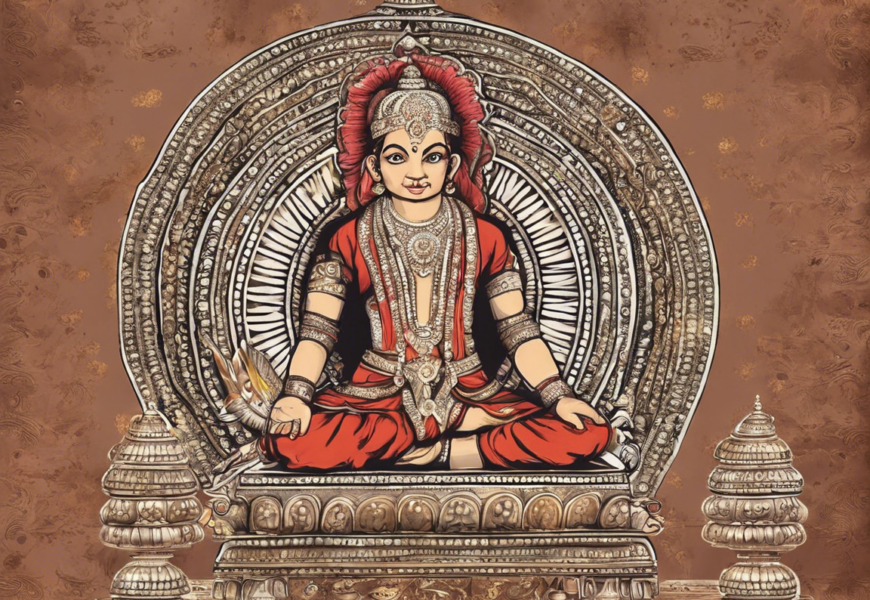Throughout history, countless religions have emerged, each with its own unique beliefs, practices, and traditions. One of the most intriguing aspects of studying religion is exploring ancient belief systems that have withstood the test of time. One such religion that stands out as the oldest religion in the world is Hinduism. Originating in the Indian subcontinent, Hinduism is a complex and diverse faith that dates back thousands of years. In this comprehensive guide, we will delve into the origins, beliefs, practices, and significance of this ancient religion.
Origins of Hinduism
Hinduism is not founded by a single individual or prophet but has evolved over thousands of years through a synthesis of various cultural and religious influences. The roots of Hinduism can be traced back to the Indus Valley Civilization which existed around 3300–1300 BCE. The religion gradually developed and incorporated elements from the Vedic traditions of ancient India, eventually giving rise to what we now recognize as Hinduism.
Core Beliefs of Hinduism
Hinduism is a diverse faith with a wide range of beliefs and practices. However, there are several key concepts that form the foundation of Hindu philosophy:
– Karma: The law of cause and effect where one’s actions in this life determine their destiny in future lives.
– Dharma: The moral and ethical duties that govern an individual’s conduct and righteousness.
– Reincarnation: The belief in the cycle of birth, death, and rebirth until the soul achieves liberation (moksha).
– Pantheon of Deities: Hindus worship a myriad of gods and goddesses, with Brahma, Vishnu, and Shiva being the principal deities in the Hindu pantheon.
Practices and Rituals
Hinduism encompasses a wide array of rituals, ceremonies, and festivals that vary based on regional traditions and sectarian beliefs. Some common practices observed by Hindus include:
– Puja: Worship rituals conducted at home or in temples, involving the offering of prayers, flowers, incense, and food to deities.
– Yoga and Meditation: Techniques for spiritual growth, self-realization, and physical well-being.
– Festivals: Celebrations such as Diwali, Holi, and Navaratri that mark significant events in Hindu mythology and the changing seasons.
Significance of Hinduism
Hinduism holds immense cultural and spiritual significance for millions of people around the world. It provides a framework for understanding the universe, one’s place in it, and the ultimate goal of life – moksha, or liberation from the cycle of reincarnation. The philosophy and teachings of Hinduism have had a profound influence on art, literature, music, dance, and other aspects of Indian culture.
Misconceptions and Clarifications
Despite its rich history and philosophical depth, Hinduism is often subject to misconceptions and misinterpretations. It is crucial to clarify a few common misunderstandings:
– “Hinduism is Polytheistic”: While Hindus worship multiple deities, the belief in Brahman as the ultimate reality unifies these diverse manifestations.
– “Caste System is Inherent to Hinduism”: The caste system, though prevalent in Indian society, is a social structure and not an inherent part of Hindu teachings.
– “Hinduism is Static and Unchanging”: Hinduism’s adaptability and inclusivity have allowed it to evolve over time, absorbing new ideas and practices while retaining its core principles.
FAQs about Hinduism
- Is Hinduism the oldest religion in the world?
-
Yes, Hinduism is widely regarded as one of the oldest continuously practiced religions.
-
How many deities do Hindus worship?
-
While there are millions of deities in Hinduism, major sects primarily worship one of the principal gods such as Vishnu, Shiva, or Devi.
-
Do Hindus believe in a single, omnipotent God?
-
Hindus believe in Brahman, the ultimate reality that manifests in various deities and forms.
-
What is the purpose of yoga in Hinduism?
-
Yoga is a spiritual practice in Hinduism aimed at achieving self-realization, physical well-being, and mental clarity.
-
Is vegetarianism a requirement in Hinduism?
- While many Hindus are vegetarian for religious reasons, dietary choices vary among individuals based on personal beliefs and cultural traditions.
In conclusion, Hinduism stands as a testament to the enduring power of ancient wisdom and spiritual inquiry. Its rich tapestry of beliefs, practices, and traditions continues to inspire and resonate with millions of followers worldwide. By delving into the origins, core beliefs, practices, and significance of Hinduism, we gain a deeper appreciation for the oldest religion in the world and the profound insights it offers into the nature of existence and the divine.




